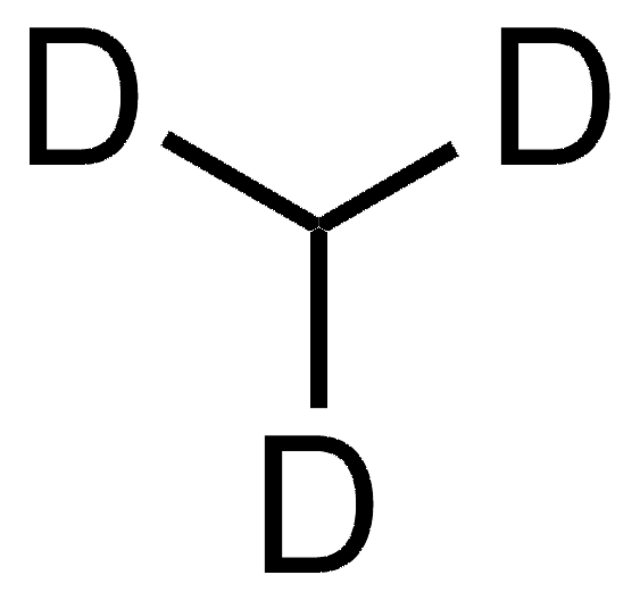All Photos(1)
About This Item
Linear Formula:
12CH4
CAS Number:
Molecular Weight:
16.03
EC Number:
MDL number:
UNSPSC Code:
41116107
PubChem Substance ID:
Recommended Products
description
13C-depleted
Quality Level
isotopic purity
99.9 atom % 12C
mass shift
depleted
SMILES string
[12CH4]
InChI
1S/CH4/h1H4
InChI key
VNWKTOKETHGBQD-UHFFFAOYSA-N
Related Categories
Packaging
This product may be available from bulk stock and can be packaged on demand. For information on pricing, availability and packaging, please contact Stable Isotopes Customer Service.
Recommended products
The use of a brass regulator is recommended.
Signal Word
Danger
Hazard Statements
Precautionary Statements
Hazard Classifications
Flam. Gas 1A - Press. Gas Compr. Gas
Storage Class Code
2A - Gases
WGK
nwg
Flash Point(F)
-306.4 °F - closed cup
Flash Point(C)
-188 °C - closed cup
Personal Protective Equipment
dust mask type N95 (US), Eyeshields, Gloves
Choose from one of the most recent versions:
Already Own This Product?
Find documentation for the products that you have recently purchased in the Document Library.
Tegan N Lavoie et al.
Environmental science & technology, 49(13), 7904-7913 (2015-07-08)
We report measurements of methane (CH4) emission rates observed at eight different high-emitting point sources in the Barnett Shale, Texas, using aircraft-based methods performed as part of the Barnett Coordinated Campaign. We quantified CH4 emission rates from four gas processing
Antoine P Pagé et al.
PloS one, 10(7), e0132062-e0132062 (2015-07-15)
The objectives of this study were to uncover Salix purpurea-microbe xenobiotic degradation systems that could be harnessed in rhizoremediation, and to identify microorganisms that are likely involved in these partnerships. To do so, we tested S. purpurea's ability to stimulate
Catharina Vendl et al.
The Journal of experimental biology, 218(Pt 21), 3425-3434 (2015-11-06)
Fundamental differences in methane (CH4) production between macropods (kangaroos) and ruminants have been suggested and linked to differences in the composition of the forestomach microbiome. Using six western grey kangaroos (Macropus fuliginosus) and four red kangaroos (Macropus rufus), we measured
Svenja T Lohner et al.
The ISME journal, 8(8), 1673-1681 (2014-05-23)
Direct, shuttle-free uptake of extracellular, cathode-derived electrons has been postulated as a novel mechanism of electron metabolism in some prokaryotes that may also be involved in syntrophic electron transport between two microorganisms. Experimental proof for direct uptake of cathodic electrons
Garvin A Heath et al.
Proceedings of the National Academy of Sciences of the United States of America, 111(31), E3167-E3176 (2014-07-23)
Recent technological advances in the recovery of unconventional natural gas, particularly shale gas, have served to dramatically increase domestic production and reserve estimates for the United States and internationally. This trend has led to lowered prices and increased scrutiny on
Our team of scientists has experience in all areas of research including Life Science, Material Science, Chemical Synthesis, Chromatography, Analytical and many others.
Contact Technical Service






